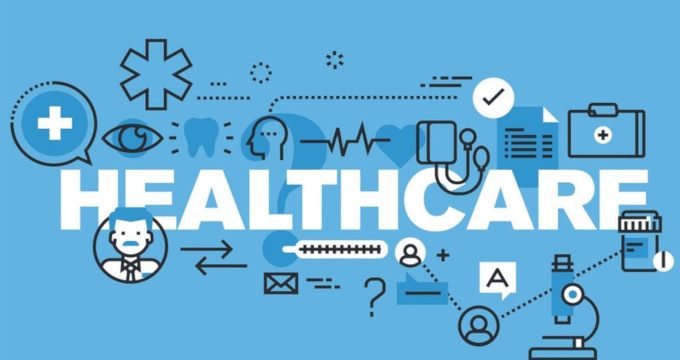Just like telemedicine, gaining insights from big data is an integral part of digital transformation in healthcare. From providing better patients’ care to understanding market trends, big data can become a huge asset.
But how exactly does it empower modern healthcare, and what does it take to implement big data solutions? In this article, we will explore both big data benefits and challenges that stand in the way of embracing big data in healthcare organizations.
Sources of Big Data in Healthcare
Before we start, though, let’s define the most common sources of healthcare data. Prescription notes, medical insurance data, information from electronic patient records, and medical imaging – are the most evident sources of data that instantly jump to mind.
The not-so-evident data sources are social media, financial transactions, customer testimonials, and inquiries. As consumer wearable devices become mainstream, they can become a treasure trove of medical data. Although often overlooked as irrelevant, this data, processed by experienced data analysts and analytic systems, can also bring business value.
Benefits of Big Data in Healthcare
So, more specifically, what are the big data benefits for healthcare organizations? Let’s now examine them in more detail.
Eliminating human error
In healthcare, the negative impact of minor errors may be irreversible. Big data analytics are capable of detecting even the slightest inconsistencies between the patient’s diagnosis and doctor’s prescriptions and eliminate mistakes before it’s too late.
Preventing medical equipment failure
The breakdown of medical equipment can lead to a serious disruption in clinical operations. When patients are in dire need of urgent diagnostics, such disruptions can be daunting. Repairs, on the other hand, are expensive and consume precious time. Alternatively, a clinic may invest in IoT sensors that monitor the state of equipment and notify medical personnel when the equipment needs maintenance so that they could schedule timely repairs.
Facilitating preventive care
Using big data and predictive analytics, doctors can also create preventive plans for the so-called ‘recurrent visitors’ – patients who often return with the same diseases and conditions. Preventive care can also rely on IoT solutions; in fact, medical internet of things and big data in healthcare is a match made in heaven. Big data analytics tools can crunch data from patients’ wearables, schedule preventive consultations, and even prescribe medications.
Read also: Using Modern Software Solutions to Run a Med Lab in 2020
Planning staffing and expenses
Big data analytics in healthcare management also accounts for better resource allocation. Using predictive analytics, clinics can estimate patients’ future admission rates (for example, when they are expecting outbreaks of diseases such as flu) and reach two important objectives: avoid understaffing and reduce patients’ emergency room wait times.
Understanding customer needs
Pharmaceutical companies, especially those engaged in new drug discovery have already recognized the value of big data in pharmaceutical R&D. Pharma industry players can use big data to understand their customers and the market better and plan the discovery of drugs that will meet market demand.
Challenges That Hamper the Use of Big Data Analytics in Healthcare
Yet, despite recognizing the benefits it can potentially bring, adopting big data solutions is still challenging for many companies. So what obstacles are preventing hospitals and clinics from using big data to their benefit?
Privacy and security
Healthcare organizations need robust security systems to deal with security challenges that come with collecting, processing, and sharing patients’ sensitive data. To protect patients’ medical data from theft, phishing, and cyberattacks organizations need to impose security policies that regulate access to data. On top of that, security systems and policies have to undergo regular assessments and re-evaluations.
Data quality
Hospitals and clinics have terabytes of historic data they could potentially use to gain insights. Unfortunately, most of this data is unstructured, stored in different formats, and resides in disparate databases. Aggregating this data into a uniform and manageable pool could be a lengthy and meticulous process. Moreover, some of the important data may be missing. Identifying and, consequently, filling the gaps in data is also time-consuming and laborious.
Legacy infrastructure
Healthcare organizations are often legacy-bound, i.e. attached to outdated IT systems, which can’t handle big data. Big data applications need to run on top of a reliable infrastructure that should also have enough network and storage capacities. Before launching data analytics projects, organizations should go for an IT infrastructure upgrade or consider a cloud shift.
Knowledge and skills gap
Despite big data solutions becoming omnipresent, good data analysts and data scientists are still scarce. Moreover, they command hefty salaries which may take a heavy toll on clinics’ budgets. The solution often lies in coaching the existing personnel, but these initiatives require time and investment.
Employee buy-in
Big data initiatives are implemented from top-down, yet, they need support on all organization’s levels to work properly. The organization’s management must have a comprehensive communication strategy in place, to gain employee engagement, and alleviate their concerns.
As complex and resource-intensive as big data analytics in the healthcare industry may appear, it has an immense potential to increase the quality of medical services and, ultimately, to revolutionize global healthcare. For healthcare organizations, the key to meeting big data adoption challenges lies in forging partnerships with a reliable healthcare solutions provider.
Read also: How Automation and IoT are Transforming Healthcare
At VARTEQ we build sophisticated healthcare applications for a wide range of medical, clinical, and lab services. Need to build tailored software solutions for healthcare? Contact us now for a free consultation!

